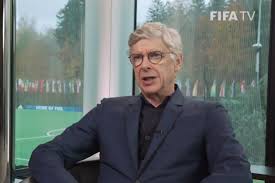By Samindra Kunti
September 3 – FIFA director of development Arsene Wenger has again beaten the drum for Gianni Infantino’s latest calendar project, a biannual World Cup, claiming that those plans will benefit both the club and international game with less matches and higher quality tournaments.
“The big idea is to initially group the qualifiers into two international windows, in October and March,” explained Wenger in an interview with French sports daily L’Equipe. “That provides more clarity for clubs and fewer problems for the national teams. After that, in principle, a major tournament should be able to take place at the end of each season, a World Cup or European Championship.”
Wenger indicated that, with the football calendar fixed until 2024 and the 2026 World Cup to be staged in the United States, Mexico and Canada, the new plans could be enacted from 2028 onwards and framed a biannual World Cup as a way to improve the international game while also benefitting the clubs, accommodating a European Championships every two years as well.
“There won’t be more matches than before and players will be called up to their national teams less often,” said Wenger.
“The idea is really to improve the quality of football and competitions. There is no financial intent behind it, especially as FIFA redistributes the money. So players will not have to play more and there will be a mandatory rest period after each final phase of a World Cup or European Championship, about 25 days I think.”
In recent weeks, the world federation and Wenger have been promoting their plans for the future of the game; a global consultation of stakeholders got under way this summer after the Saudi Arabian Football Federation (SAFF), out of nowhere, tabled the dramatic proposal at Congress, backed by Morocco’s controversial Fouzi Lekjaa, and asked FIFA to conduct a feasibility study on the impact of playing both the men’s and women’s global finals on a biennial basis.
The Saudi proposal dovetailed with Infantino’s expansionist vision of the game. Under his presidency, the World Cup finals have been increased to 48 teams, with the new format expected to bring in bumper crowds and revenues across the US, Mexico and Canada in 2026.
Unsurprisingly, the idea for a World Cup every two years has gained traction. The Confederation of African Football (CAF) was the first to endorse the idea following an executive committee meeting in July. Heavyweights Amaju Pinnick of Nigeria and Lekjaa again were among the chief advocates with the latter branding opponents “egotists”.
Earlier this week, Nepal, Sri Lanka, Maldives and Bangladesh united to become the first Asian Football Confederation (AFC) member association to support FIFA’s vision. Previously, Mexico and Costa Rica also indicated that they are open to a biennial World Cup.
In Europe, Denmark oppose the idea, suggesting, if not confirming, the battle lines over the international match calendar in the near future – UEFA against FIFA and much of the rest of the world.
The UEFA president Aleksander Ceferin is understood to have privately said that the idea would be a short and long term “disaster’ for international club and national team competitions, and the general confederation narrative across the world that has seen more national teams compete in more meaningful major competitions than ever before.
The overriding opinion of most within football is that expanding the World Cup to every two years would not increase opportunity but rather consolidate exclusivity amongst the world’s leading nations – most of whom would most likely vote against the concept if they were given the chance.
However, the vote of minor football nations like Nepal, Sri Lanka, Maldives and Bangladesh clearly show a direction of travel towards their interest in the promise of a significantly greater revenue distribution to themselves, rather than towards protecting the sporting integrity of world football’s already phenomenally successful – and growing – ecosystem.
Contact the writer of this story at moc.l1751315247labto1751315247ofdlr1751315247owedi1751315247sni@i1751315247tnuk.1751315247ardni1751315247mas1751315247

